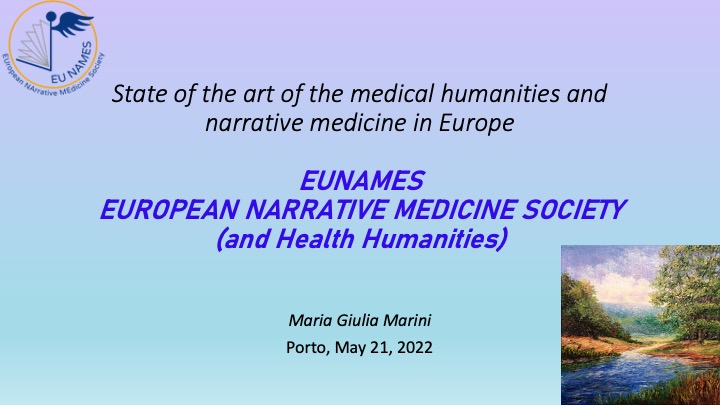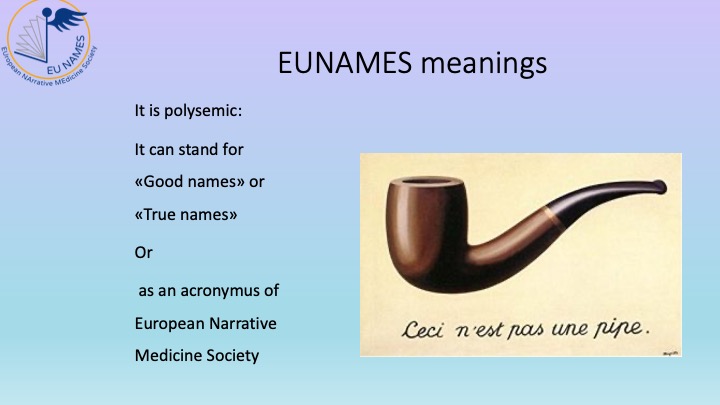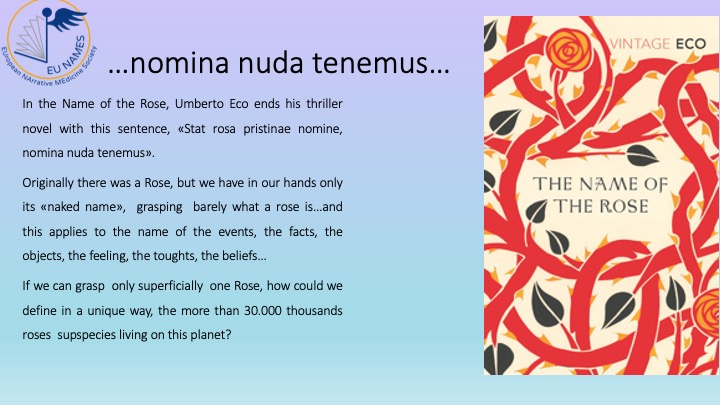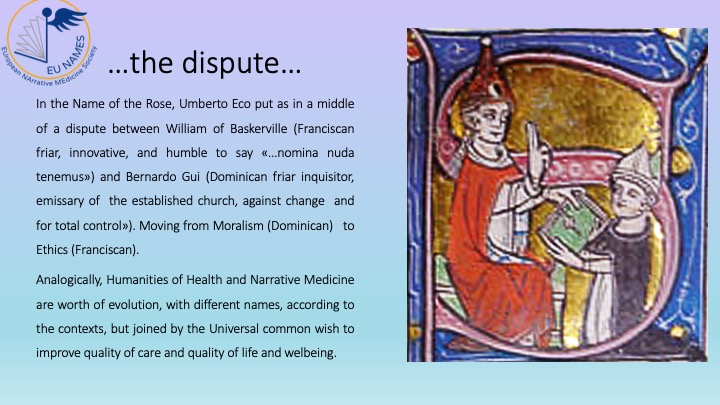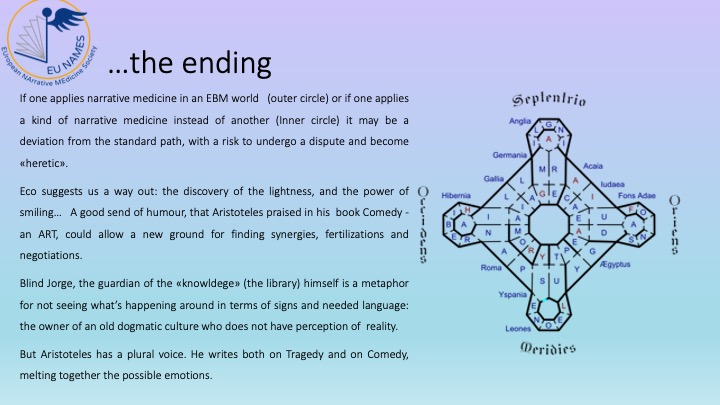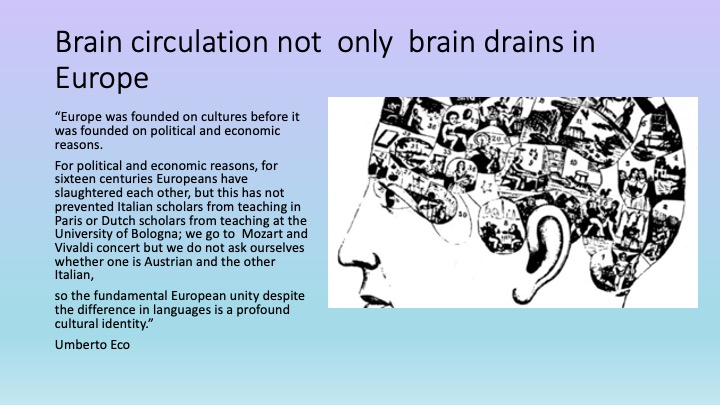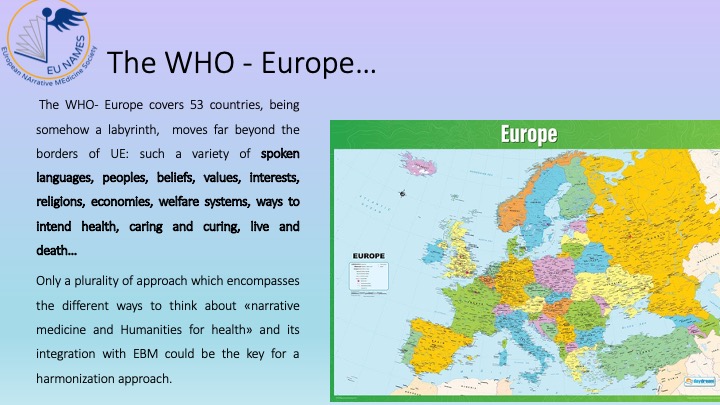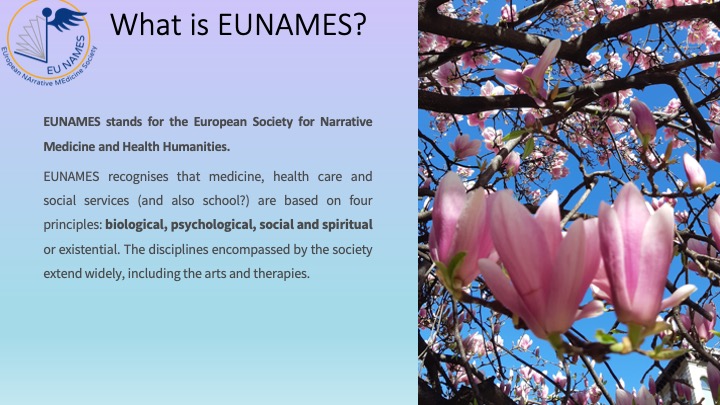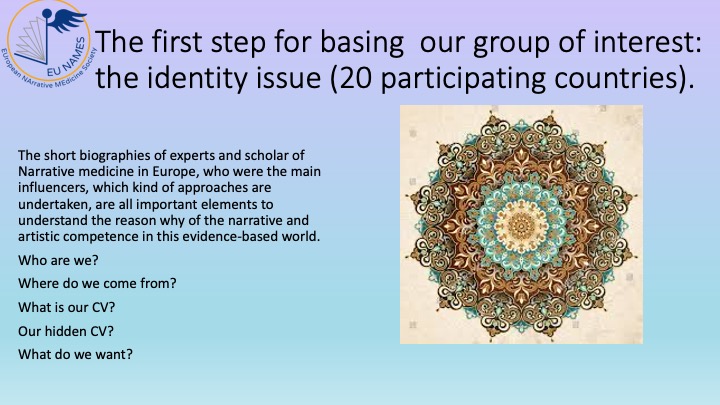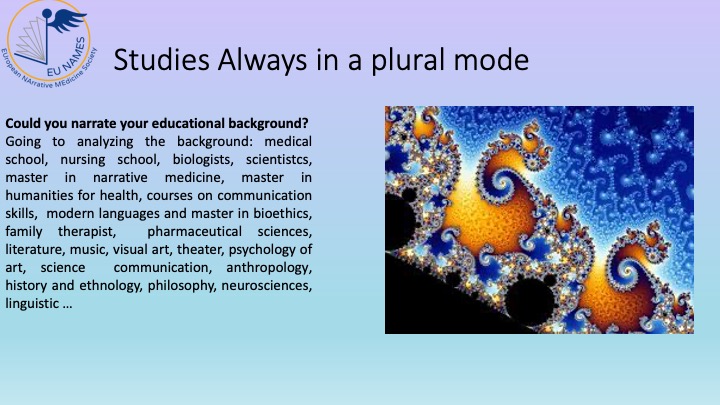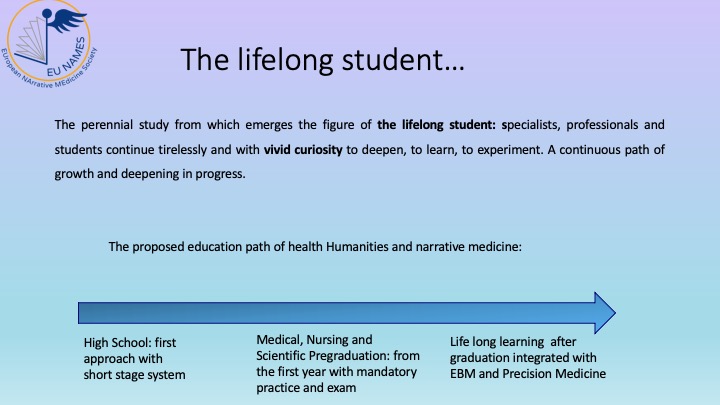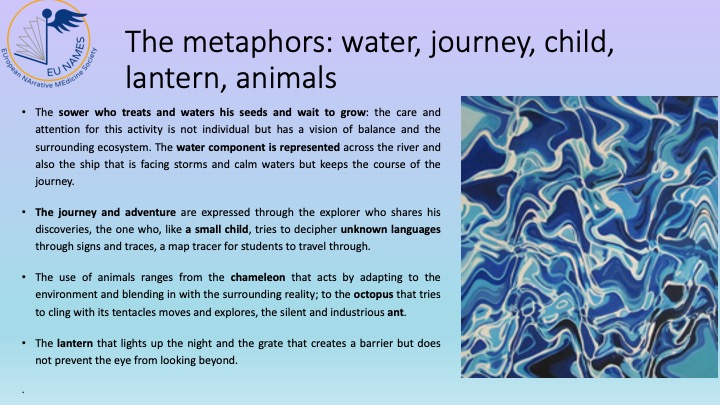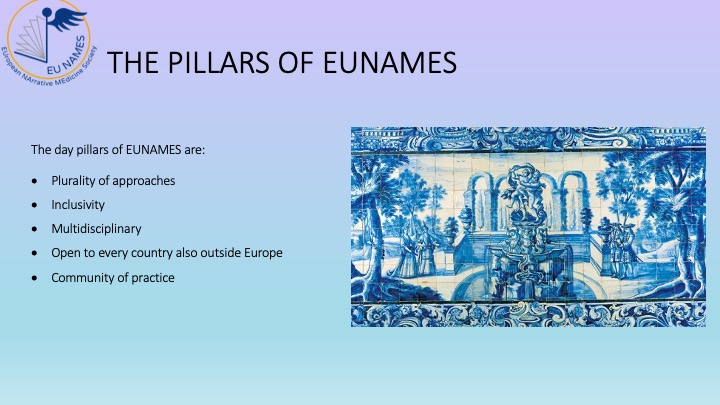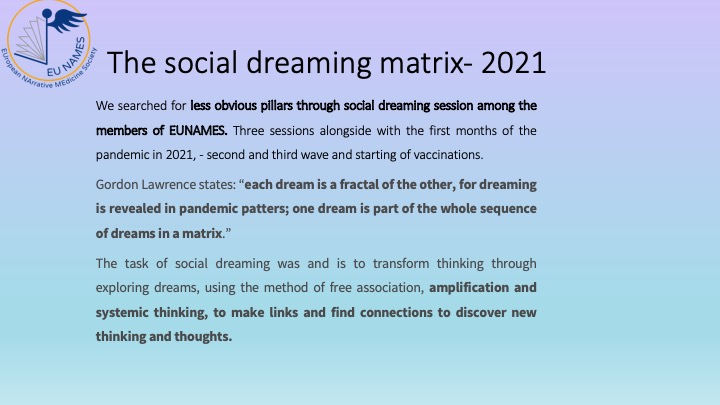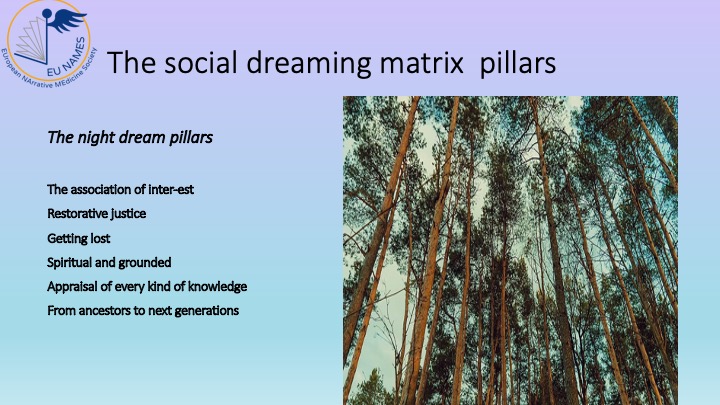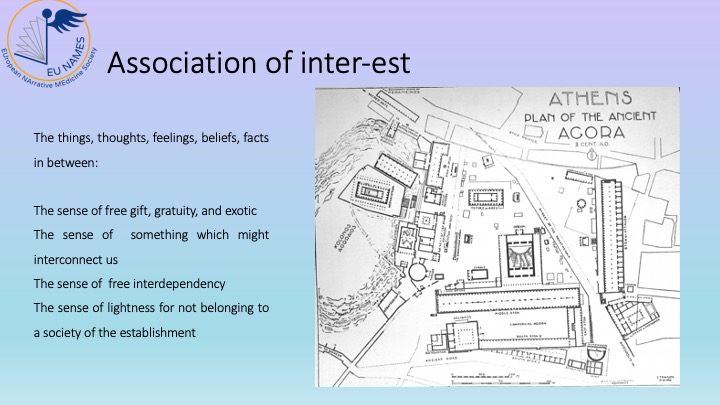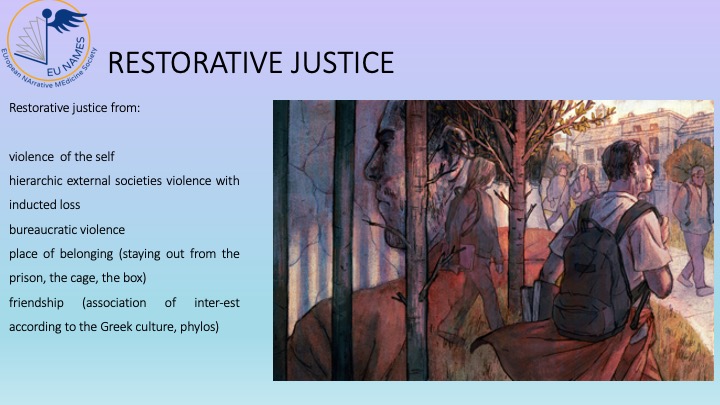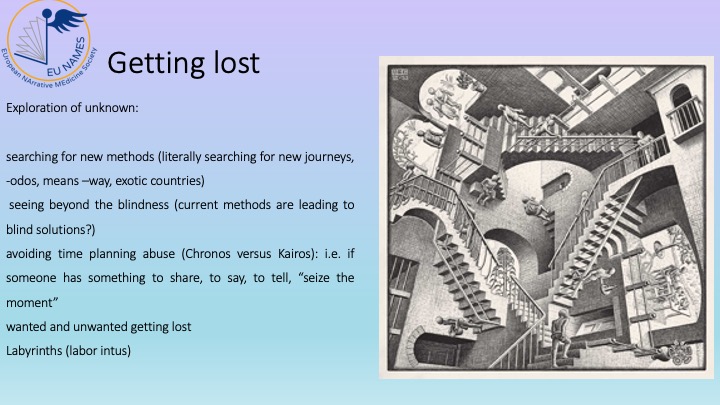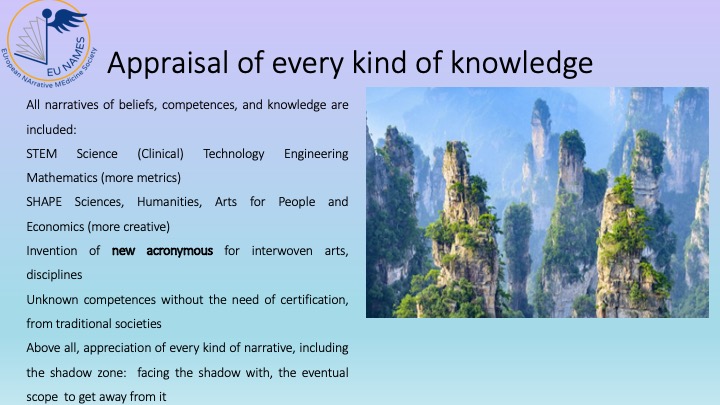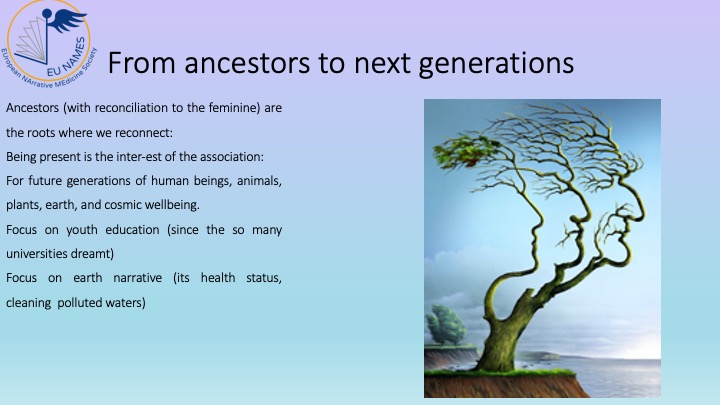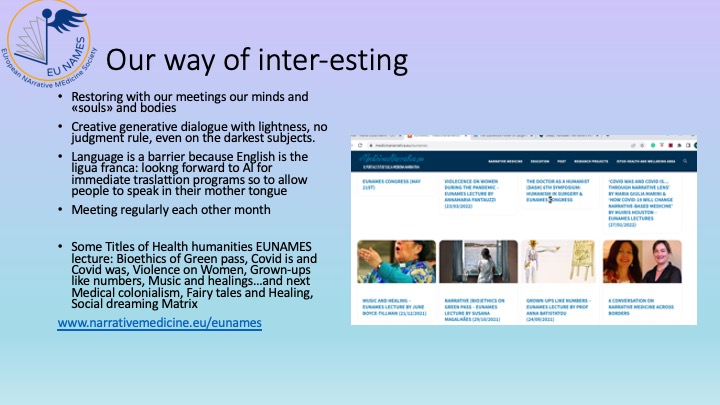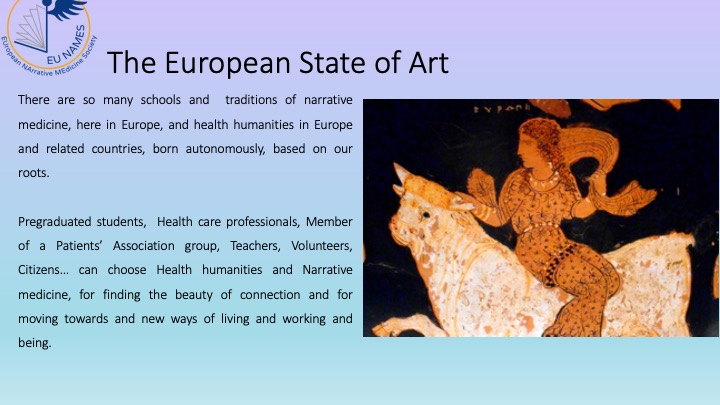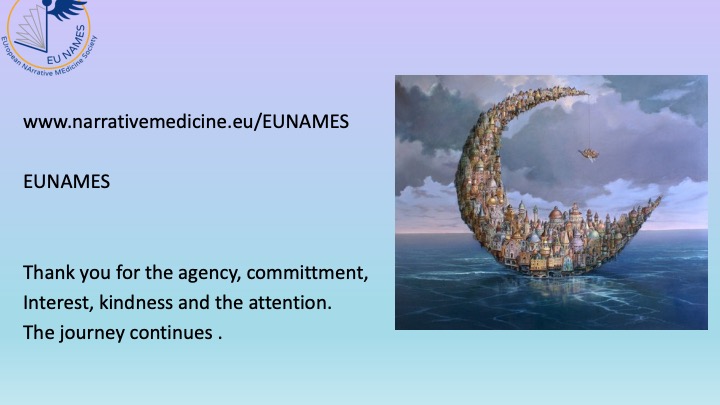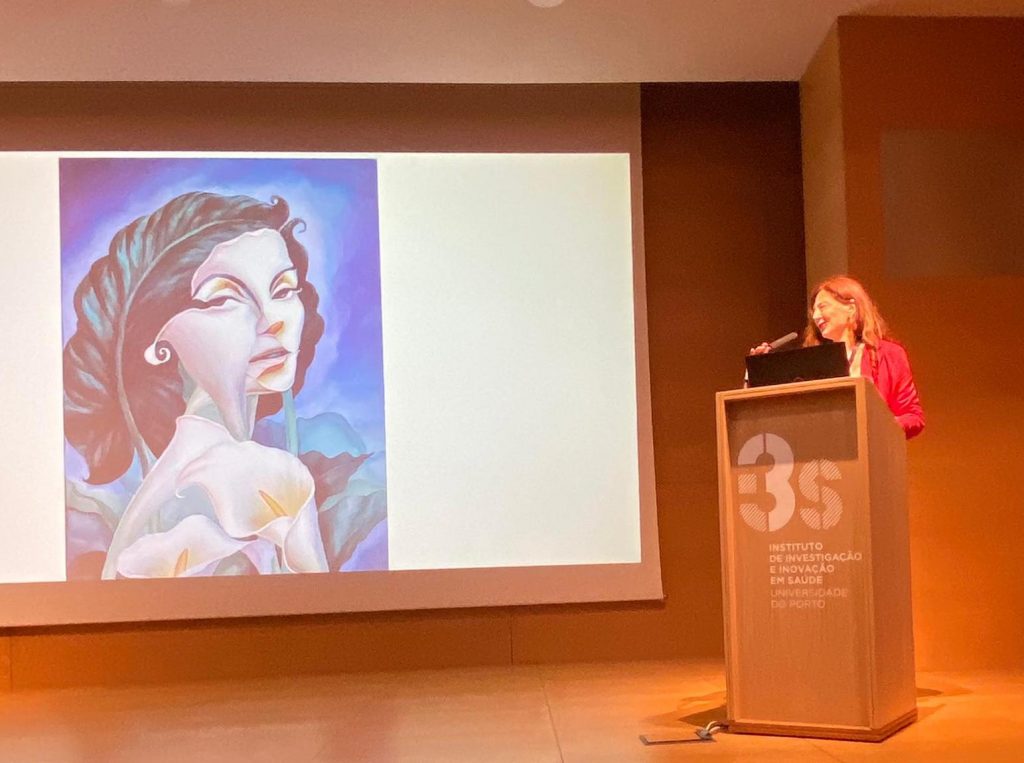
Between the 19th and the 21st of May in Porto (Portugal) took place the “Humanism in Surgery” Symposium.
The last day was dedicated to The European Narrative Medicine Society (EUNAMES) Congress.
Maria Giulia Marini draw the lines of what has been a wonderful experience of intellectual, interest and research concert.
The congress in Porto on Saturday May 21, held at the I3S and organized mainly by Susana Magalhaes, was more a concert than a continuous presentation of speakers, in my mind. It was a concert because, although we did not have a precise assigned topic, and the world of health humanities is so immense, we as speakers were harmonized in “playing” our music in this field. We had the honour of an opening session by Nils Fietje, representing the WHO Europe in 53 countries, who explained from an institutional position how humanities for health and narrative medicine are endorsed by the WHO, with concrete actions: in common daily practice, in education research, and now in a situation of particular vulnerability relating to refugees and the pandemic.
Personally, linking myself to the analogy with the book ‘The Name of the Rose’ by Umberto Eco [1], I tried, to explain that -whether we call these topics ‘Humanities for Health’ or ‘Medical Humanities’, or ‘Narrative Medicine’, or ‘Narrative Based Medicine’, or ‘Narrative Based Practice’ – we all share the common mission of serving the health and wellbeing of the person (behind the patient), the health care professional, the caregivers, the decision makers and the citizenship too.
Let me devote a few words to this analogy with such an immense book, ‘The Name of the Rose’, which contains three layers of reading: the more evident one is that of an entertaining novel about a series of murders in an abbey, with a detective, a Franciscan friar, William of Baskerville; the second layer is the historical one, with a magnificent recreation of life in an abbey at the Middle Ages, and the daily life of monks and peasants. However, the third level( and here the semiologist Eco comes out), is a philosophical one, related to the philosophy of language: the thriller ends with with this sentence, ‘Stat rosa pristinae nomine, nomina nuda tenemus’. What does this mean? ‘Originally, there was a rose, but we have in our hands only its naked name’. We can barely grasp what a rose is… and this applies to the name of the things, events, the facts, the objects, the feeling, the thoughts, the beliefs… If we can grasp only superficially one rose, how could we define in a unique way, the more than 30.000 thousand roses subspecies living on this planet? And can this apply to the many forms of Evidence Based Medicine around, and to the many Narrative Medicines, and also to the Health Humanities. There is no possibility of holding tight onto only one name, because names are just pale description of life.
In the novel there are two main thinking trends: those of the innovators and those of the status quo. Umberto Eco puts the readers in the middle of a dispute between William of Baskerville – innovative and humble, and saying in the end ‘…nomina nuda tenemus’ – and Bernardo Gui, a Dominican friar inquisitor, emissary of the established church, against change and for total control, and pretty much sure that all the necessary names are there, and that no new names should be created, and their use should occur only in a top-down way, by the centre of power at that time, the establishment of the Church. If you don’t use the name properly, and if you misbehave, the consequences will be to be considered an heretic. In this book, there is a continuous dynamic between the Dogma, Bigotry and Moralism on the one hand and Ethics, Discovery and Fact-Checking with compassion on the other.
Altogether, Eco suggests compassion is a way out from this dispute: the discovery of lightness, and the power of smiling. A good send of humour, which Aristoteles praised in his book on Comedy, and art can provide a new ground for finding synergies, fertilizations and grounds for negotiation. The blind Jorge, the guardian of the ‘knowledge’ (the library) himself, is a metaphor for not seeing what is happening around him in terms of signs and needed language: together with Gui (the power of the established church) he is the owner of an old dogmatic culture (the power of the established knowledge) who does not have perception of reality. But Aristoteles, the Greek philosopher, has a plural voice. He writes both on Tragedy and on Comedy, melting together the possible emotions.
Analogically, Health Humanities and Narrative Medicine are worthy of evolution, with different names, according to the contexts, and remembering that every patient or person is a world apart. This is a Universal concept. Applying it to Europe we should never forget we have such a variety of languages, peoples, beliefs, values, interests, religions, economies, welfare systems, ways to provide health, caring and curing, life and death. Only a plurality of approaches which encompass the different ways of thinking about Narrative Medicine and Humanities for Health and its integration with EBM can be the key for a harmonised approach.
Why did I come up with this analogy? Because personally I have sometimes been imprisoned in this dispute on what is this rose that we call maybe Narrative Medicine, maybe Humanities for Health or maybe Narrative Based Medicine: there are indeed different cultures, different schools, here in Europe and in America, and in Australia, and for sure elsewhere in the world. So many roses forming a wonderful rose garden, and we only can remain in awe, overwhelmed by the beauty of these scents, the variety of colours, the shapes of the petals. And I recalled my reading ‘The Name of the Rose’, with the final genius idea that if we can allow ourselves to smile and laugh, although disputes do happen because they are part of professional life, with the lightness we can try to release the burden of some words, and even to erase this word heretic, which is unspoken but is acted. If someone is ‘narrative based’, they are perceived as not ‘evidence based enough’. If ‘someone is evidence based’, they are perceived as ‘not narrative-based enough’, within this dichotomous short sighted way of seeing. And Which Narrative? Which Evidence?
In my opening lines I wrote that it was more like a harmonized concert in Porto in May 21 – maybe a jazz one, with some improvisations. After I somehow dared to speak about the dispute, John Launer talked about the practice of Health Humanities, Narrative Medicine and Narrative-Based Practice as a series of Russian dolls, the matryoshkas: they can be seen as nesting within each other, but they each have their own individuality. This was the music we played. Neil Vickers raised the need to call for an agency now to teach these disciplines in our medical and scientific school, together with Muirish Houston. Now it is not the time for banishing them. Nicoletta Suter brought up the success of education in Narrative Medicine for postgraduate professionalsin Italy: full on-line classes, so that people who have climbed the wall of pure numbers and technology can also embrace narratives, with the close reading approach. This was illustrated also with the European Share project run by Isabel Fernandez. Then there was the important ‘conciliation of the apparent opposites’, provided by Ourania Varsou who teaches anatomy through poetry, and the call by Dora Tseligka to have linguistics as well on board of Health Humanities and Narrative Medicine. ‘Nomina nuda tenemus’: the linguists are so important for tracking back the ancient root and migration of a name, to understand its cultural contexts.
Clinical practice can benefit from this plurality of Roses (within EBM and NBM), no more in conflict, as shown by Marco Cordero: the so-called miracle of what the right words and listening posture can even do in an emergency room, when a doctor has only few minutes of time. Yes, narrative competence can develop even there.
As a concert we ended with June Boyce-Tillman who spoke to us about the immense healing power of music, the sound that came before every word was spoken. I wish to quote from her presentation:
‘Living creatures share an energetic bond by which they can influence each other’s health…from bacteria to human beings’.
There is no time to lose. Young, generations are fragile as never before, prior to the pandemic. Health care systems are burdened by pandemic fatigue,and trying to sustain our ecosystems of mind and soul only with Artificial Intelligence solutions. We now need to act, leaving the disputes behind our backs [2].
[1] Il Nome della Rosa, Umberto Eco, 1980, Publisher Bompiani
[2] EUNAMES is both insular and open to interconnections, it is vital and full of volunteers with their content: it has a line of direction but prefers to remain a group of “friends” in the Greek sense of the term, an agora of exchange, without institutionalized records, except for the continuous involvement of WHO and the many universities and research organizations that are part of it. It finds itself at least bimonthly hosting papers by qualified professionals, whose names, affiliations, and all presentations made-including the sketch-are to date available at www.narrativemeedicine.eu/eunames .
The European Narrative Medicine Society was born from an idea of the Italian Society of Narrative Medicine (SIMeN), and it is an association of non-profit researchers dedicated to the investigation of Medical Humanities and Humanities for Health in the medical, health care, social services.
The purpose of this European Society is to promote and strengthen dialogues, discussions on the present and the future of Medical Humanities and narrative medicine, for health professionals, researchers (both academics and non-academics), humanists, teachers and other professionals coming from every branch. All this with the aim to contribute to improve both the well-being of people who suffer from a physical condition or a mental illness, and the health workers, the caregivers, the social services and the citizenship.
VISIT THE EUNAMES PAGE TO LEARN MORE: https://www.medicinanarrativa.eu/eunames
WRITE TO US FOR ANY FURTHER INFORMATION: eunames@istud.it
We are always welcoming new members from around Europe and happy to broaden our host member community with people fro around the world. If you want to join us, please send a short profile to the above email and we will be in touch.

